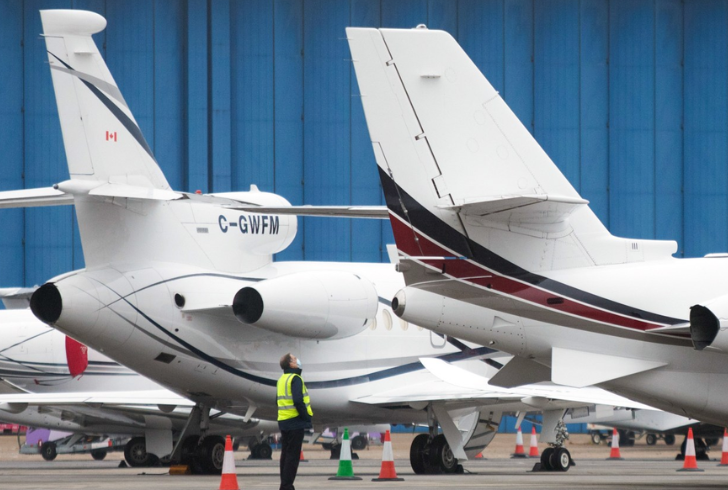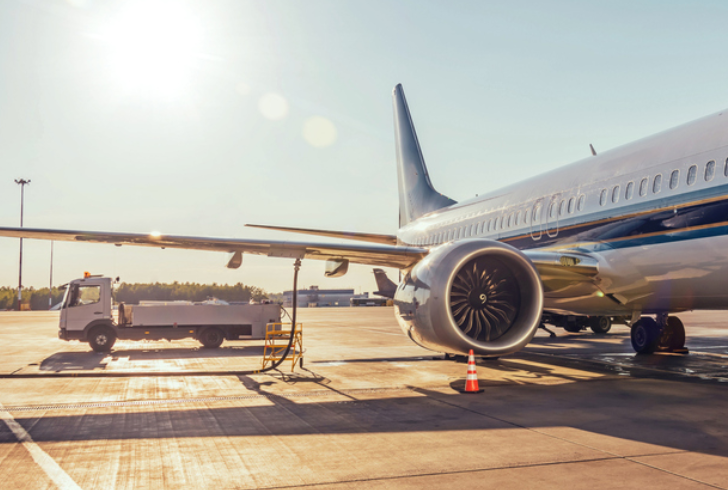The aviation sector’s environmental impact has become a pressing issue, with private jet emissions at the forefront of discussions about climate change. A small fraction of the global population—just 1%—is responsible for a staggering 50% of aviation emissions.
This reality raises critical questions about the responsibility of the super-rich who frequently utilize private jets for short-distance travel, significantly contributing to the growing carbon footprint.
The Rising Trend of Private Jet Travel

In recent years, private jet usage has surged, particularly in Europe, where emissions increased by 31% from 2005 to 2019. This growth rate outpaced that of commercial aviation, highlighting a concerning trend. While the COVID-19 pandemic temporarily disrupted this increase, private jets rebounded much faster than commercial flights once travel resumed.
This rapid recovery underscores the preference of affluent individuals for the convenience and exclusivity of private aviation, often without considering the environmental ramifications.
Environmental Footprint of Private Jets
The ecological impact of private jet travel is alarmingly disproportionate. A single hour of flight in a private jet can release approximately two tonnes of CO2. To put this in perspective, the average individual in the European Union generates about 8.2 tonnes of CO2 over an entire year. This stark contrast emphasizes how private jet emissions are not just a personal choice but a collective concern that contributes significantly to climate change.
Key Statistics:
1. Private Jet Usage in France – In 2019, private jets accounted for 10% of all flights departing from France, with half of those journeys covering distances under 500 km.
2. Pollution Comparisons – Private jets are 5 to 14 times more polluting per passenger than commercial aircraft and an astonishing 50 times more than trains. This pollution gap is expected to widen as private jet users opt for larger, more emissions-intensive aircraft.
The Need for Regulatory Action
As the environmental consequences of private jet travel become clearer, it is essential to implement measures to mitigate their impact. Regulatory authorities can play a crucial role in driving change and encouraging more sustainable aviation practices.
Recommendations for Sustainable Aviation

1. Transition to Green Technologies
By 2030, regulations should mandate the use of hydrogen or electric aircraft powered by renewable energy for private flights under 1,000 km in Europe.
2. Engagement with Sustainable Suppliers
Major private jet companies must establish Power Purchase Agreements (PPAs) with suppliers of e-kerosene to support the shift toward greener alternatives.
3. Implementing Taxes
Until sustainable technologies become widely available, imposing a ticket and fuel tax on fossil-fuel private jets is a viable solution. This tax should scale based on flight distance and aircraft size, reflecting their environmental impact. For instance, a ticket tax similar to that adopted by Switzerland—around €3,000—could generate hundreds of millions of euros, which could be allocated to developing eco-friendly aviation technologies.
Encouraging Reduced Usage
In light of the environmental crisis, individuals and companies should commit to reducing private jet travel significantly.
The Path Forward
The increasing awareness of private jet emissions highlights a critical need for change in the aviation industry. As society grapples with climate challenges, it becomes increasingly important to hold the super-rich accountable for their environmental choices. Reducing reliance on private jets is not just an ethical obligation but also a necessary step toward a more sustainable future.
Addressing private jet emissions is not merely about limiting the flight options of the wealthy; it is about recognizing the collective responsibility toward our planet. By implementing regulatory measures, investing in sustainable technologies, and promoting a culture of reduced air travel, it is possible to curtail the environmental impact of this exclusive form of aviation. The time for action is now, and with concerted efforts, the aviation industry can move toward a more sustainable future.

